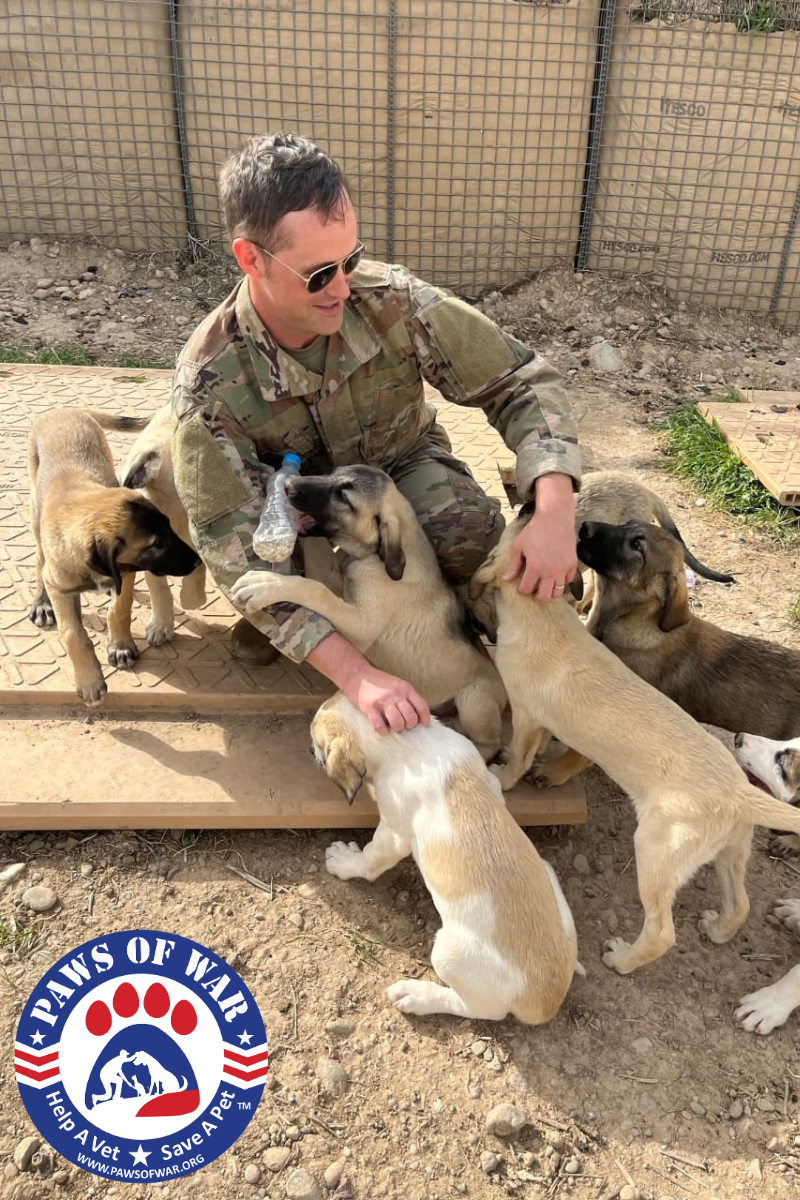(Air1 Closer Look) -- A small meow from the rubble tugs at a soldier’s lonely heart. A bony pup cowering nearby begs for a bite of ration. U.S. combat vets sometimes adopt battlefield pets for mutual aid and comfort during overseas deployment. “They raise them, they spend 8-9 months with them, they sleep in their bed, they love them,” says Robert Misseri of Paws of War, but when duty calls the solider away from the war zone, “they can’t play any role in bringing that animal home.”
Paws of War runs missions to find a soldier’s beloved pet and bring it safely to the States. “We have to go into countries like Iraq and Syria, Jordan, Kosovo,” Misseri says. It is dangerous work. “We do it, we do it at no cost to our active military members; we get those animals back here and we reunite them.”
The non-profit has extracted more than 700 dogs and cats from combat zones since they began in 2014. “We have never ever said no ever to any of our active military members – we always find a way to get those animals out.”
Operations depend on what Misseri calls “like-minded resources” -- help from the locals in countries where you cannot put animals in trucks, lest you rouse suspicion. “Some places it is extremely rare to see a dog in a vehicle, so it’s a red flag; you’re putting people in danger by doing that,” in cultures where a dog would never be treated as a pet. To accomplish the rescue in those places, Paws of War volunteers have floated dogs out in canoes or carried them out of town on donkeys.
Misseri admits the retrieval of a beloved combat pet is exceptionally expensive and complicated, but says, at the end of the day it’s all worth it. “There's nothing worse than talking to a veteran who's back, or an active military member, who tells you they had to leave an animal behind -- how it broke their heart,” leaving soldiers feeling like they betrayed a friend. “So when we get that request, we act quickly.”
The vet-pet reunions are profoundly heartwarming. “There's nothing like seeing, you know an active military member, show up at their door, come home to their family and have that dog or cat waiting for them. It's amazing,” he says.
Paws of War also has programs for U.S. veterans suffering homelessness or PTSD after their military service, matching them with dogs rescued from local animal shelters. Pets, particularly dogs, have been shown to improve human mental health and even our physical health.
“That's why we look forward to waking up every morning saying, ‘okay where's the next dog that we're going to rescue and who's our next veteran?"



